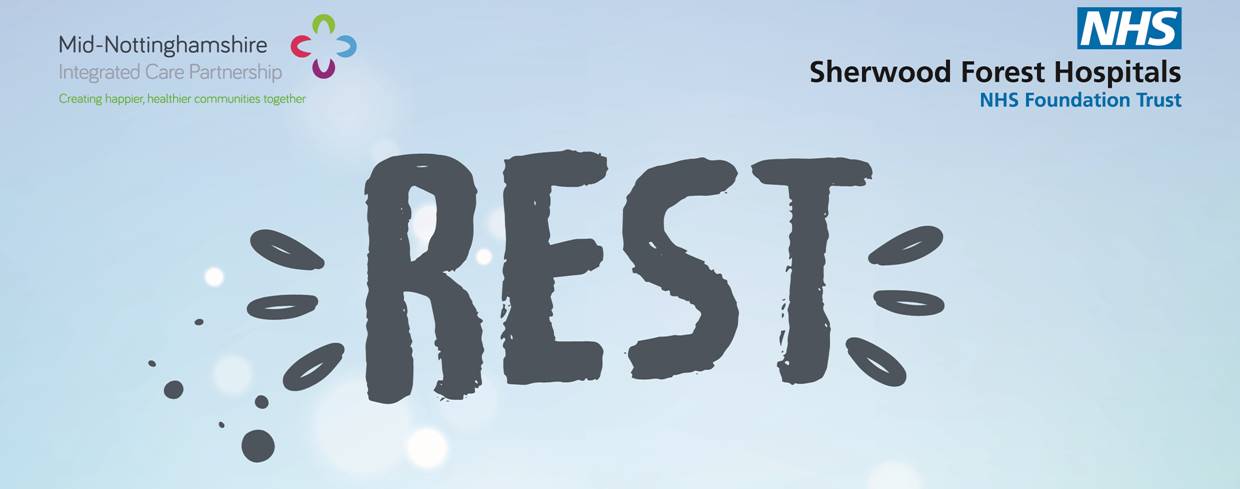Rest, Rehydrate and Refuel
Rest, Rehydrate and Refuel
There is a growing body of evidence linking positive colleague experience and good health and wellbeing with improved patient outcomes. Shift work, long working hours and a lack of rest breaks can make it challenging for colleagues to self-care and look after their own health and wellbeing.
In order to maintain your own physical health it is critical to have an awareness of how your body is feeling and respond to it appropriately. Our bodies need to be at the correct state of readiness in order to overcome the challenges and activities presented in both work and home life.
Three key areas for achieving this are Rest, Rehydrate and Refuel. To view the final project booklet please visit below.
Rest, Rehydrate and Refuel, author Rachel Hart.
Please see below information on each theme.



Our bodies need regular periods of rest in order to recover from the physical demands placed upon them. When we analyse data, assess risk or make clinical decisions when tired, our ability to do so is impaired. Therefore regular breaks are essential to the delivery of safe, effective patient care. Even relatively mild sleep deprivation and fatigue can have profound effects on how we think and feel. When fatigued you are more likely to make clinical errors and diagnostic mistakes, suffer a needle stick injury or be involved in a road traffic collision driving home.
Improving sleep quality is one of the most important actions you can take. Helpful tips and advice for your sleep environment and routine can be found here.
Check out this animation on getting enough sleep.
Having regular rest breaks can be challenging, but there are some simple steps you can take that can give you the best possible opportunity. Click here for more information.
Check out this animation on taking regular rest breaks.
Working nights is essential in the NHS, but it has consequences, not least for your own health. We are not physiologically evolved to function at night as we do in the daytime, nor are we adapted to achieve good quality sleep during the day. Top tips and advice for surviving the nightshift can be found here.
Working the night shift? Check out this animation for some top tips.

Dehydration can affect your cognition and decision-making and therefore is a patient safety issue.
Do you ever experience headaches, feeling tired and weak, confusion, mood swings, lack of concentration or dry lips?
If so you may be experiencing dehydration.
Water makes up two thirds of our body, therefore it is essential that we drink enough fluid to maintain a healthy balance. Water has a wide range of benefits for your body – from removing waste products in urine to lubricating your joints. It can even make your skin look good. Good hydration can help prevent UTIs, headaches and constipation.
Click here to access information on what and how much you should be drinking. There are also tips on how to stay hydrated whilst at work.
Is your pee healthy? Take a look here at a chart that shows if you are hydrated enough.

Food is energy and during a physical shift where you are on your feet for long periods, it is important to eat nutritional food that releases energy slowly.
Eating a healthy balanced diet can provide us with all the energy we need to get through our day. Our bodies give us clear signs of hunger from starting to think about food and having an urge to eat right through to being irritable and lacking energy, you might even start to feel nauseous.
The consequences of ignoring these early signs might mean you then go on to experience headaches, feeling dizzy and lack concentration.
For advice on what are the best foods to eat whilst at work, please click here.
Working nightshifts can cause additional complications. For advice on what to eat on a nightshift please click here.
